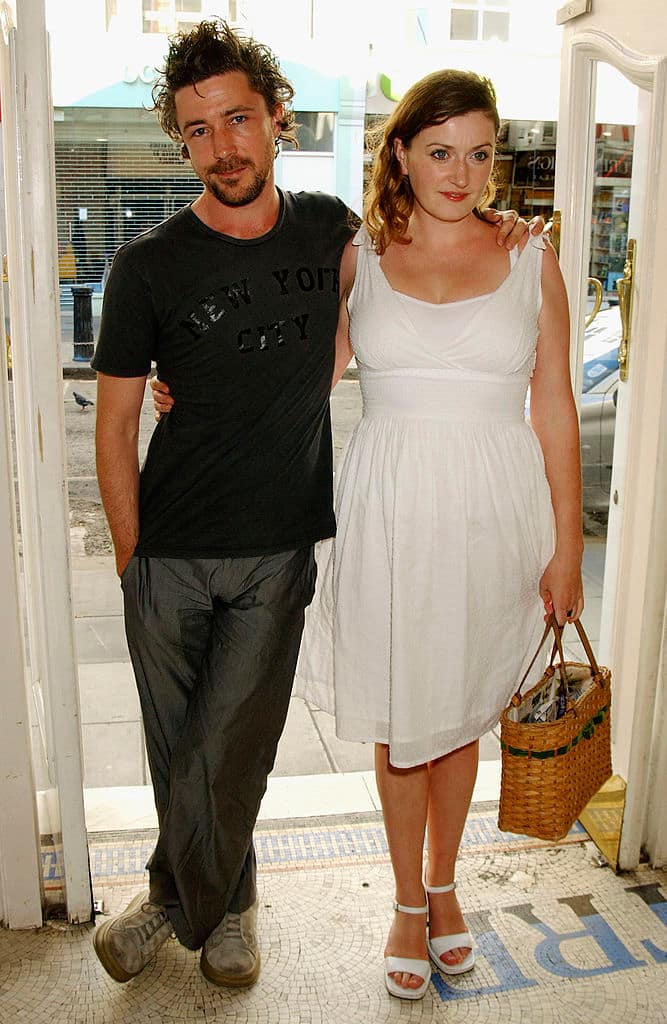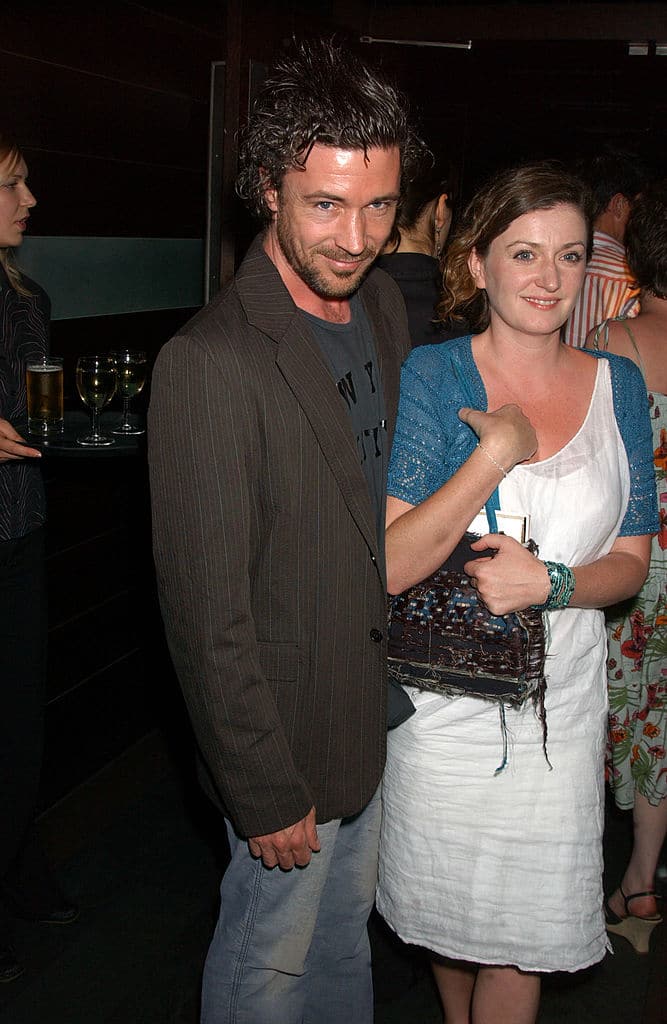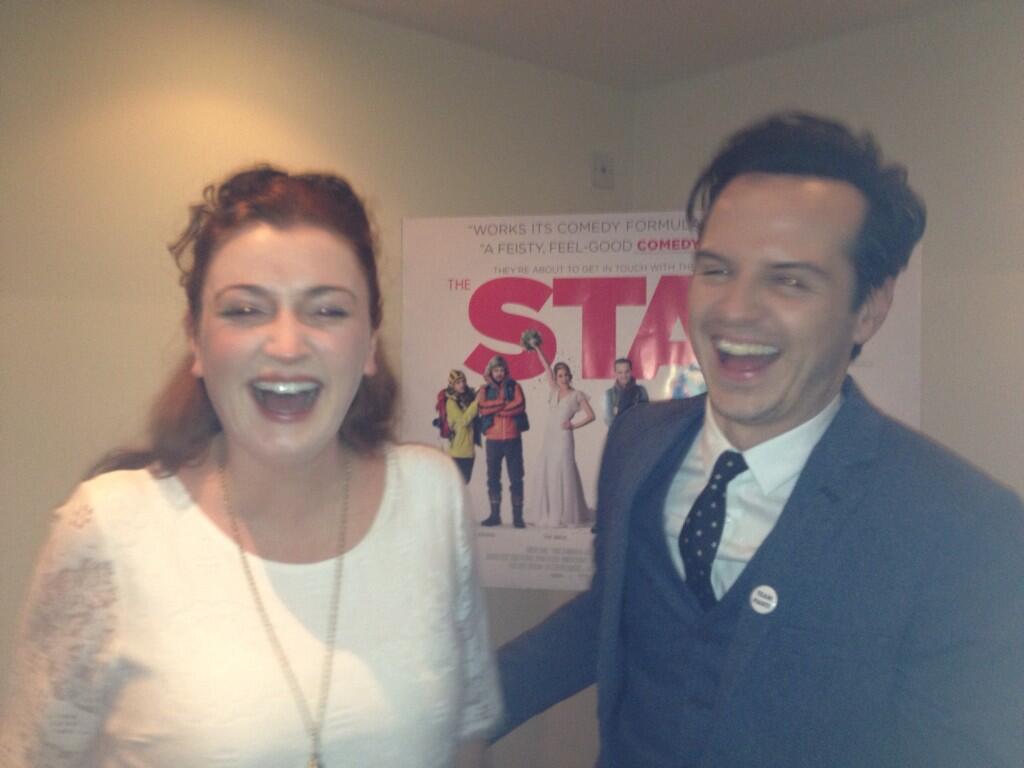Meet The Inspiring Olivia O'Flanagan: Her Story And Impact
Who is Olivia O'Flanagan?
Olivia O'Flanagan is an Irish woman who was wrongfully convicted of murder and sentenced to life in prison. She spent 16 years in prison before her conviction was overturned. O'Flanagan's case is a high-profile example of a miscarriage of justice, and her story has been widely reported in the media.
O'Flanagan was born in Dublin, Ireland, in 1963. She was raised in a working-class family and left school at the age of 15. She worked a variety of jobs before becoming a cleaner at a nursing home. In 1994, she was accused of murdering an 83-year-old woman named Kathleen O'Beirne. O'Flanagan was convicted of murder in 1996 and sentenced to life in prison.
- The Complete Guide To Alex Oloughlins Children
- Sabrina Carpenters Height And Weight A Comprehensive Guide
O'Flanagan always maintained her innocence, and her case was eventually overturned in 2010. She was released from prison in 2011 and has since become an advocate for the wrongfully convicted.
O'Flanagan's case is a reminder of the importance of due process and the need to ensure that everyone has a fair trial. Her story is also a testament to the strength of the human spirit and the power of hope.
olivia o'flanagan
Life and Career
Olivia O'Flanagan was born in Dublin, Ireland, in 1963. She was raised in a working-class family and left school at the age of 15. She worked a variety of jobs before becoming a cleaner at a nursing home.
- Gabriel Machts Stature Unraveling The Actors Height
- Peter Gene Hernandez Uncovering The Real Name Behind Bruno Mars Stardom
In 1994, O'Flanagan was accused of murdering an 83-year-old woman named Kathleen O'Beirne. O'Flanagan was convicted of murder in 1996 and sentenced to life in prison.
O'Flanagan always maintained her innocence, and her case was eventually overturned in 2010. She was released from prison in 2011 and has since become an advocate for the wrongfully convicted.
Wrongful Conviction
O'Flanagan's case is a high-profile example of a miscarriage of justice. She was convicted of murder based on the testimony of a single witness who later recanted his statement.
O'Flanagan's wrongful conviction is a reminder of the importance of due process and the need to ensure that everyone has a fair trial.
Advocacy Work
Since her release from prison, O'Flanagan has become an advocate for the wrongfully convicted. She has spoken out about the flaws in the criminal justice system and the need for reform.
O'Flanagan's advocacy work has helped to raise awareness of the issue of wrongful convictions. She has also helped to provide support to other wrongfully convicted individuals.
olivia o'flanagan
Olivia O'Flanagan's wrongful conviction and subsequent advocacy work highlight key aspects of the criminal justice system and the importance of due process.
- Wrongful Conviction: O'Flanagan's case is a high-profile example of a miscarriage of justice, raising concerns about the reliability of eyewitness testimony and the need for reforms to prevent wrongful convictions.
- Miscarriage of Justice: O'Flanagan's 16-year imprisonment despite maintaining her innocence underscores the potential for errors in the criminal justice system and the devastating consequences for those wrongly convicted.
- Due Process: O'Flanagan's case emphasizes the fundamental principle of due process, ensuring that every individual receives a fair trial and is protected from arbitrary or unjust punishment.
- Eyewitness Testimony: The unreliability of eyewitness testimony, as demonstrated in O'Flanagan's case, highlights the need for caution in relying on such evidence and the importance of corroborating evidence to ensure accuracy.
- Advocacy: O'Flanagan's advocacy work since her release has been instrumental in raising awareness about wrongful convictions and advocating for reforms to prevent future miscarriages of justice.
- Resilience: O'Flanagan's story is a testament to the resilience of the human spirit, demonstrating the ability to overcome adversity and seek justice even after enduring a wrongful conviction.
| Name | Born | Birth Place | Nationality | Occupation |
|---|---|---|---|---|
| Olivia O'Flanagan | 1963 | Dublin, Ireland | Irish | Cleaner, Advocate for the Wrongfully Convicted |
Wrongful Conviction
Olivia O'Flanagan's wrongful conviction highlights the flaws in the criminal justice system, particularly the unreliability of eyewitness testimony. Her case raises important questions about the need for reforms to prevent wrongful convictions.
- Unreliable Eyewitness Testimony: O'Flanagan's conviction was based primarily on the testimony of a single eyewitness who later recanted his statement. This case demonstrates the fallibility of eyewitness testimony and the need for caution in relying on such evidence.
- Need for Corroborating Evidence: To prevent wrongful convictions based on unreliable eyewitness testimony, it is essential to require corroborating evidence to support such testimony. This could include physical evidence, DNA evidence, or the testimony of multiple witnesses.
- Reforms to Prevent Wrongful Convictions: O'Flanagan's case has led to calls for reforms to the criminal justice system to prevent wrongful convictions. These reforms could include better training for law enforcement officers on the unreliability of eyewitness testimony, the use of audio and video recordings of interrogations, and the establishment of innocence commissions to review cases of potential wrongful convictions.
Olivia O'Flanagan's wrongful conviction is a reminder of the importance of due process and the need to ensure that everyone receives a fair trial. Her case has helped to raise awareness of the issue of wrongful convictions and has led to calls for reforms to prevent future miscarriages of justice.
Miscarriage of Justice
Olivia O'Flanagan's case is a stark reminder of the potential for miscarriages of justice within the criminal justice system. Her wrongful conviction and subsequent 16-year imprisonment highlight several key issues:
- Errors in Investigation and Prosecution: O'Flanagan's case raises questions about the thoroughness and accuracy of the initial investigation and prosecution. The reliance on unreliable eyewitness testimony and the failure to adequately consider exculpatory evidence contributed to the miscarriage of justice.
- Systemic Biases: O'Flanagan's case also exposes potential systemic biases within the criminal justice system. Factors such as socioeconomic status, race, and gender can the likelihood of being wrongly convicted.
- Devastating Consequences for the Wrongly Convicted: Wrongful convictions have devastating consequences for the individuals involved. They endure years of unjust imprisonment, social stigma, and emotional trauma. O'Flanagan's case highlights the need for support and compensation for those who have been wrongly convicted.
- Need for Reforms: O'Flanagan's case underscores the urgent need for reforms to the criminal justice system to prevent future miscarriages of justice. This includes measures to improve the accuracy of investigations, reduce systemic biases, and provide adequate support for the wrongfully convicted.
Olivia O'Flanagan's story is a powerful reminder of the importance of due process and the need to ensure that everyone receives a fair trial. Her case has helped to raise awareness about the issue of wrongful convictions and has led to calls for reforms to prevent future miscarriages of justice.
Due Process
Olivia O'Flanagan's case is a powerful example of the importance of due process in the criminal justice system. Her wrongful conviction and subsequent exoneration highlight the potential for miscarriages of justice when due process is not followed.
Due process is a fundamental principle of law that guarantees fair and impartial treatment for all individuals. It includes the right to a fair trial, the right to be represented by an attorney, and the right to be free from cruel and unusual punishment. In O'Flanagan's case, her due process rights were violated when she was convicted based on unreliable eyewitness testimony and without adequate legal representation.
O'Flanagan's case has helped to raise awareness of the importance of due process and has led to calls for reforms to the criminal justice system. These reforms include measures to improve the accuracy of eyewitness testimony, to provide better legal representation for indigent defendants, and to reduce the use of plea bargains.
Due process is essential for a fair and just criminal justice system. It protects individuals from being wrongly convicted and ensures that they are treated fairly throughout the criminal justice process.
Eyewitness Testimony
Olivia O'Flanagan's wrongful conviction is a sobering reminder of the unreliability of eyewitness testimony. Eyewitness misidentification is a leading cause of wrongful convictions, and O'Flanagan's case is a powerful example of how innocent people can be convicted based on faulty memories or mistaken identities.
There are a number of factors that can contribute to eyewitness misidentification, including stress, anxiety, and the suggestibility of witnesses. In O'Flanagan's case, the eyewitness who identified her as the perpetrator was under a great deal of stress at the time of the crime. He was also shown a photo lineup that included only one person who resembled O'Flanagan, which may have influenced his identification.
O'Flanagan's case highlights the importance of corroborating eyewitness testimony with other evidence, such as DNA evidence or physical evidence. In her case, there was no physical evidence linking her to the crime, and the only evidence against her was the eyewitness testimony. This lack of corroborating evidence should have raised red flags and led to a more thorough investigation.
The unreliability of eyewitness testimony is a serious problem that can have devastating consequences for innocent people. O'Flanagan's case is a reminder that we must be cautious in relying on eyewitness testimony and that we must always seek corroborating evidence before convicting someone of a crime.
Advocacy
Olivia O'Flanagan's advocacy work has been instrumental in raising awareness about wrongful convictions and advocating for reforms to prevent future miscarriages of justice. Since her release from prison in 2011, O'Flanagan has spoken out about the flaws in the criminal justice system and the need for reform.
O'Flanagan's advocacy work has helped to change the way that wrongful convictions are viewed by the public and by policymakers. She has helped to raise awareness about the factors that can contribute to wrongful convictions, such as eyewitness misidentification and prosecutorial misconduct.
O'Flanagan's work has also helped to lead to concrete reforms to the criminal justice system. For example, she has been involved in efforts to pass legislation that would create a national registry of wrongful convictions and to provide compensation to those who have been wrongly convicted.
O'Flanagan's advocacy work is a powerful example of how one person can make a difference. She has used her own experience to help others who have been wrongly convicted, and she has worked tirelessly to prevent future miscarriages of justice.
O'Flanagan's advocacy work is also a reminder of the importance of due process and the need to ensure that everyone receives a fair trial. Her case is a powerful example of how the criminal justice system can fail, and it is a reminder that we must always be vigilant in protecting our rights.
Resilience
Olivia O'Flanagan's story is a powerful example of the resilience of the human spirit. After being wrongly convicted of murder and sentenced to life in prison, she never gave up hope. She maintained her innocence and fought for her freedom for 16 years. Finally, in 2010, her conviction was overturned, and she was released from prison.
O'Flanagan's story is an inspiration to us all. It shows us that even in the face of adversity, we can overcome and achieve justice. She is a reminder that we should never give up on our dreams, no matter how difficult things may seem.
O'Flanagan's resilience is also a testament to the power of the human spirit. Even after enduring years of wrongful imprisonment, she was able to rebuild her life and become an advocate for others who have been wrongly convicted. She is a true inspiration, and her story is a reminder that we can all overcome adversity and achieve our goals.
Frequently Asked Questions about Olivia O'Flanagan
This section provides answers to some of the most frequently asked questions about Olivia O'Flanagan, her wrongful conviction, and her advocacy work.
Question 1: How long was Olivia O'Flanagan wrongfully imprisoned?Olivia O'Flanagan was wrongfully imprisoned for 16 years.
Question 2: What was the evidence that led to Olivia O'Flanagan's wrongful conviction?The evidence that led to Olivia O'Flanagan's wrongful conviction was primarily based on the testimony of a single eyewitness who later recanted his statement.
Question 3: What reforms has Olivia O'Flanagan advocated for since her release from prison?Since her release from prison, Olivia O'Flanagan has advocated for a number of reforms to the criminal justice system, including the creation of a national registry of wrongful convictions and the provision of compensation to those who have been wrongly convicted.
Olivia O'Flanagan's case is a powerful reminder of the importance of due process and the need to ensure that everyone receives a fair trial. Her wrongful conviction and subsequent advocacy work have helped to raise awareness about the issue of wrongful convictions and have led to calls for reforms to prevent future miscarriages of justice.
Conclusion
Olivia O'Flanagan's story is a powerful reminder of the importance of due process and the need to ensure that everyone receives a fair trial. Her wrongful conviction and subsequent advocacy work have helped to raise awareness about the issue of wrongful convictions and have led to calls for reforms to prevent future miscarriages of justice.
O'Flanagan's case highlights the potential for errors in the criminal justice system and the devastating consequences for those who are wrongly convicted. It also underscores the importance of eyewitness testimony and the need for corroborating evidence to ensure accuracy.
O'Flanagan's resilience and advocacy work are an inspiration to us all. She has shown us that even in the face of adversity, we can overcome and achieve justice. Her story is a reminder that we should never give up on our dreams, no matter how difficult things may seem.
Article Recommendations
- How Old Was Justin Chambers In The First Season Of Greys Anatomy
- Bobby Flays Extraordinary Personal Journey A Culinary Masters Story



Detail Author:
- Name : Miss Heidi Kozey
- Username : haag.josiane
- Email : kswaniawski@gmail.com
- Birthdate : 1980-08-07
- Address : 88627 Morgan Plains Suite 271 North Maudie, VA 13761-5355
- Phone : +14146228238
- Company : Herzog, Kreiger and Effertz
- Job : Sheriff
- Bio : Eum suscipit reprehenderit minus ut delectus. Consequuntur doloribus illum nihil delectus dolores nesciunt quas. Sed minima consequuntur aut. Omnis repudiandae autem vel et expedita vel aut nam.
Socials
facebook:
- url : https://facebook.com/ojast
- username : ojast
- bio : Corrupti qui distinctio et odio quia voluptate.
- followers : 6139
- following : 759
instagram:
- url : https://instagram.com/olin_dev
- username : olin_dev
- bio : Id ut velit et et quasi. Voluptate ipsa quia adipisci laboriosam dolor ut consequuntur.
- followers : 5234
- following : 1300